APU Hosts Seminar on the Treaty of Amity and Cooperation in Southeast Asia
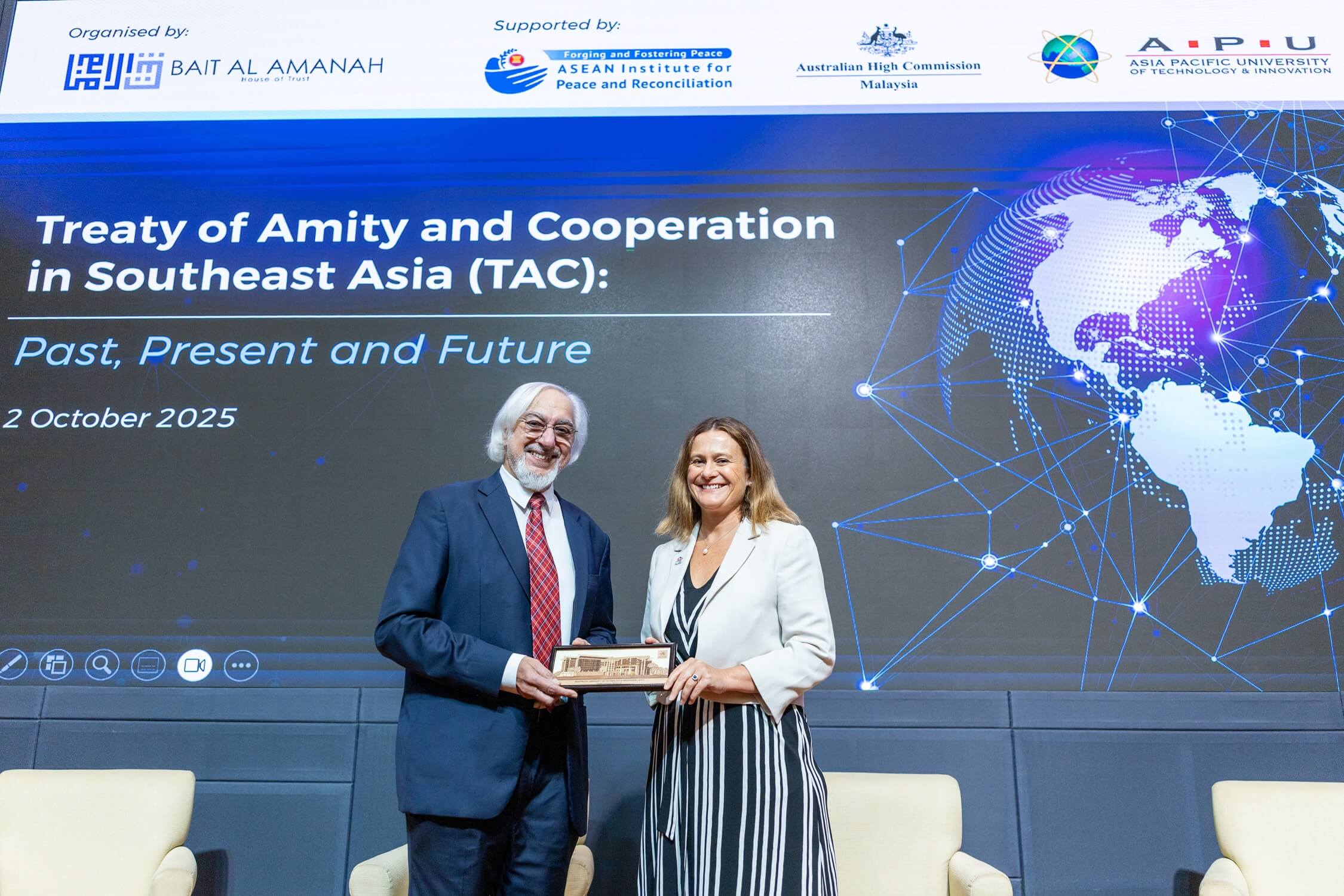
On 2 October 2025, the Asia Pacific University of Technology & Innovation (APU) proudly hosted the “Seminar on the Treaty of Amity and Cooperation in Southeast Asia (TAC): Past, Present and Future”.
The seminar was organised by Bait Al Amanah, an independent policy research institute, in partnership with the ASEAN Institute for Peace and Reconciliation (ASEAN-IPR), the official think tank of ASEAN, and with the support of the Australian High Commission in Kuala Lumpur.
The event, held in anticipation of the TAC’s 50th anniversary in 2026, provided a timely platform to evaluate the treaty’s achievements, examine present challenges, and explore its future direction.
More than 150 participants—comprising ASEAN-IPR Board Members, academics, think tanks, and students from both public and private universities—joined the discussion.
Significantly, APU’s own Bachelor of Arts (Honours) in International Relations students, who are members of the APU International Relations Society (APUIRS), took a leading role in supporting the organising committee, together with International Relations academics led by Mr Muhammad Syahir Md Ali, Lecturer at the School of Business (SoB).
APU’s Commitment to Global Dialogue
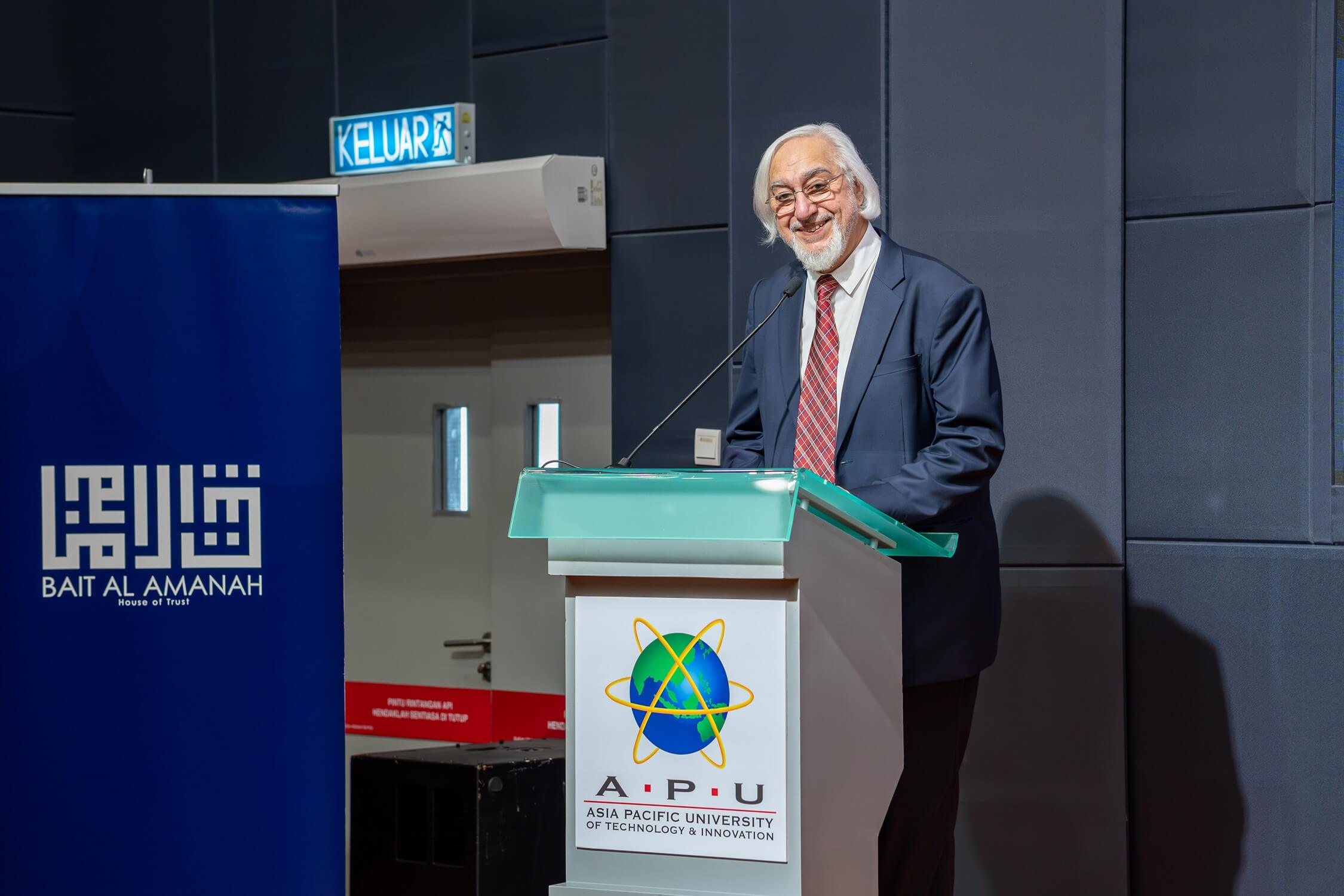
In his welcoming address, Datuk Parmjit Singh, Chief Operating Officer of APU, underscored the importance of the occasion:
“We are deeply privileged to host this meaningful dialogue. This gathering of notable dignitaries from ASEAN countries reflects a shared commitment to regional peace, mutual respect, and constructive diplomacy—values that have been embedded within the TAC since its inception in 1976.”
He further highlighted the treaty’s enduring relevance: “With 51 High Contracting Parties, the TAC continues to shape the principles of peaceful coexistence across Southeast Asia and beyond. At APU, we believe that education must not only prepare students for the future but also engage them with the forces shaping our world. We hope that today’s discussions will inspire the next generation of leaders, thinkers, and peacebuilders.”
Australia’s Enduring Partnership with ASEAN
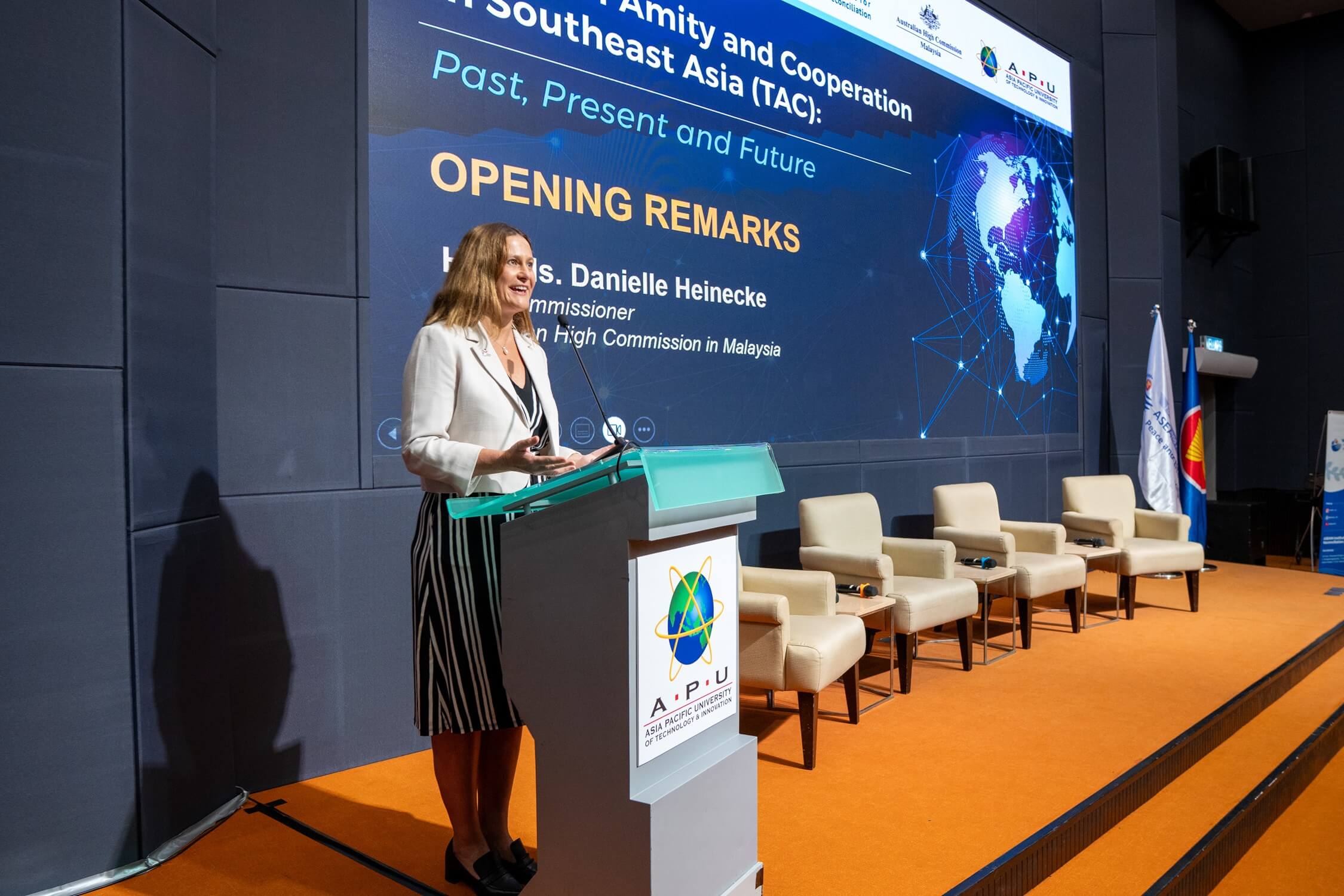
The seminar was officially launched by H.E. Ms Danielle Heinecke, Australian High Commissioner to Malaysia, who reaffirmed Australia’s commitment to peace, stability, and conflict prevention through the TAC.
“We’re seeing the costs of conflict around the world for all of us, and this is compounded by emerging and ongoing threats, including the climate crisis, cyber attacks and transnational crime. So why is the TAC important? We have a shared responsibility to prevent conflict and ensure peace is more important than it has ever been. This is the purpose we understand of the TAC’s existence.”
She added, “Today’s seminar and the discussions you have just begun are really important conversations for the future. We’re committed to continuing to work with you, and we call on all the high contracting parties, old and new, to uphold their principles, both in words and action. And we welcome ongoing efforts to explore how the TAC can best ensure peace, stability and prosperity.”
Her remarks framed the seminar as not merely a retrospective but a forward-looking dialogue that demands collaboration, resilience, and visionary leadership.
Expert Insights on ASEAN’s Future

The seminar also welcomed Ambassador I Gusti Agung Wesaka Puja, Executive Director of ASEAN-IPR; Dr Abdul Razak Ahmad, Chair of the ASEAN-IPR Advisory Board and Founding Director of Bait Al Amanah; as well as senior management, academic leaders, and faculty from APU.
In his keynote address, Dr Abdul Razak analysed the shifting global landscape, marked by the rise of technology giants, the weakening of traditional state-centric governance, and the emergence of complex geopolitical challenges.
He urged ASEAN to draw on its foundational principles—diplomacy, solidarity, and trust—to navigate future uncertainties and uphold peace, unity, and inclusive progress.
Ambassador Puja described the seminar as part of the ASEAN-IPR University Tour, designed to engage students and scholars directly, as the institute aims to ignite inspiration and ownership among students, encouraging them to explore ASEAN as an area of research and scholarship, perhaps even the focus of their graduating theses.
Youth Voices at the Forefront
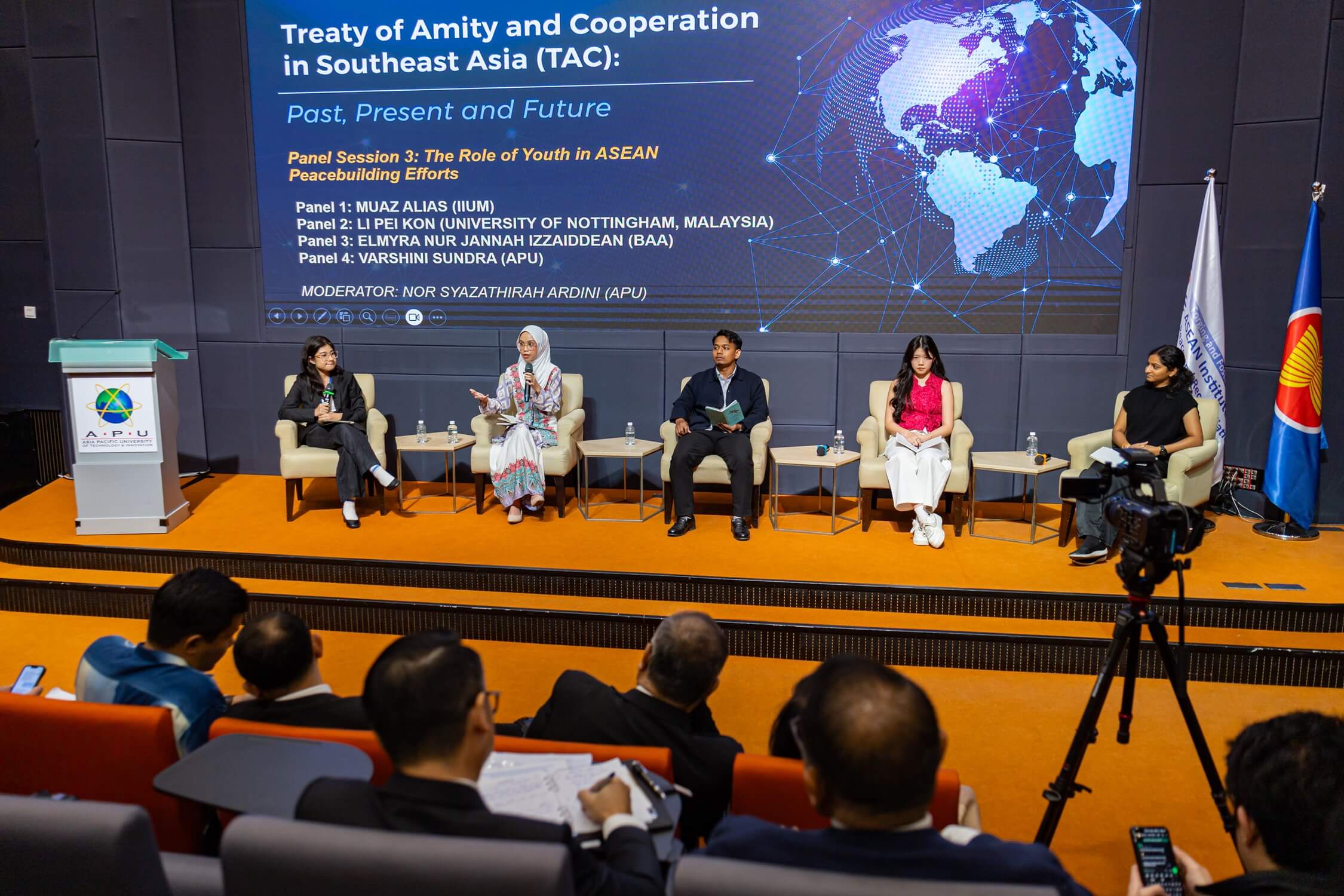
The panel sessions formed the heart of the seminar, tackling themes such as “The TAC and the Idea of ASEAN Centrality”, “Strengthening ASEAN’s Capacity for Peace in the Face of Emerging Regional Tensions”, and “The Role of Youth in ASEAN Peacebuilding Efforts.”
In a landmark move, the panel on youth engagement was moderated by Nor Syazathirah Ardini, an APU International Relations undergraduate, and featured a dynamic line-up of young leaders:
- Varshini Sundra, President, International Relations Society, APU
- Elmyra Nur Jannah Izzaiddean, Research Intern, Bait Al Amanah and a graduate of Universiti Utara Malaysia
- Muaz Alias, President, Political Science Association, IIUM
- Li Pei Kon, President, United Nations Youth, University of Nottingham Malaysia
Together, they embodied the vibrancy and determination of ASEAN’s younger generation. Their discussion emphasised that young people are not simply “leaders of tomorrow”—they are already playing pivotal roles in peacebuilding today.
As one recurring sentiment captured, youth in ASEAN are not just future leaders; they are peacebuilders in their own right. With proper support, inclusivity, and recognition, their role can transcend symbolism and exert meaningful influence in shaping a stable, diverse, and peaceful ASEAN community.
Building Bridges Across Generations
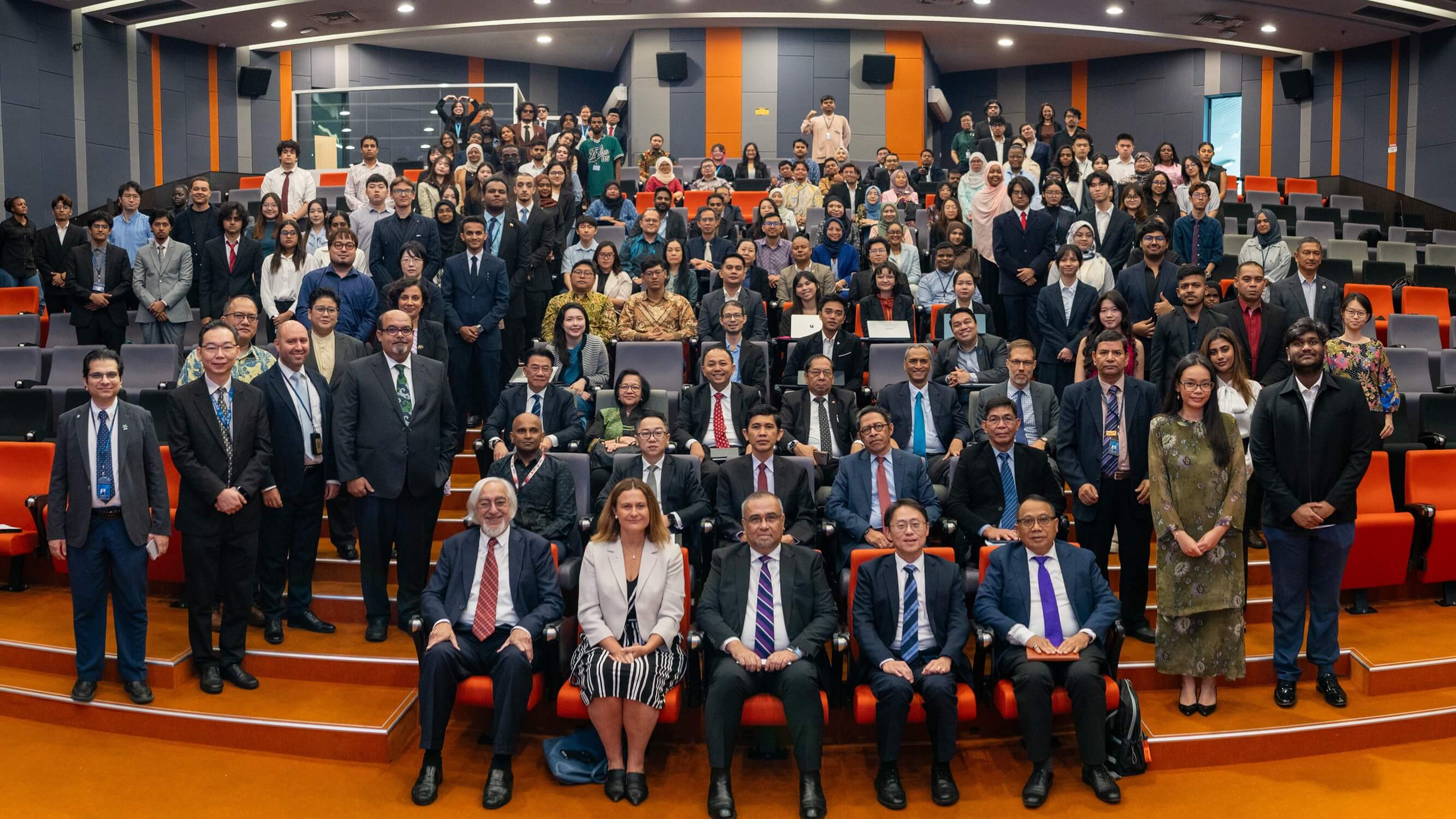
The seminar concluded with closing remarks by Dr Abdul Razak, followed by a networking session over tea, cementing new connections among participants.
The event reaffirmed that the Treaty of Amity and Cooperation remains a cornerstone for peace in the region. More importantly, it underscored that the torch of responsibility is already being carried by the next generation—students, young professionals, and emerging leaders—who are determined to sustain peace and stability across Southeast Asia.
By hosting this seminar, APU has not only facilitated a high-level dialogue but also empowered its students to take an active role in shaping the future of diplomacy and conflict prevention. It demonstrated the University’s enduring commitment to bridging academia, policy, and practice—while giving the youth of ASEAN both the voice and platform to influence regional peacebuilding for decades to come.





 +60173309581
+60173309581